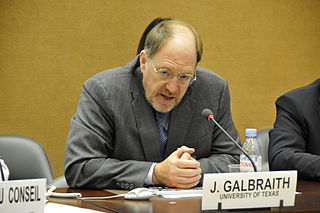A Quote by Daniel Dennett
The traditional view of purpose says it comes from on high, from God, from the Creator. Darwin's idea of natural selection makes people uncomfortable because it reverses the direction of tradition. Whereas people used to think of meaning coming from on high and being ordained from the top down, now we have Darwin saying, "No, all of this design can happen, all of this purpose can emerge from the bottom up without any direction at all."
Related Quotes
If I were to give a prize for the single best idea anybody ever had, I'd give it to Darwin for the idea of natural selection - ahead of Newton, ahead of Einstein - because his idea unites the two most disparate features of our universe: the world of purposeless, meaningless matter and motion, particles jostling on the one side, and the world of meaning and purpose, design on the other.
Let me lay my cards on the table. If I were to give an award for the single best idea anyone ever had, I'd give it to Darwin, ahead of even Newton or Einstein and everyone else. In a single stroke, the idea of evolution by natural selection unifies the realm of life, meaning, and purpose with the realm of space and time, cause and effect, mechanism and physical law. It is not just a wonderful idea. It is a dangerous idea.
The Church demonstrated the falsity and folly of Darwin's theories by showing that they contradicted the Mosaic account of creation, and now that the theories of Darwin having been fairly established, the Church says that the Mosaic account is true because it is in harmony with Darwin. Now, if it should turn out that Darwin was mistaken, what then?
The early 20th Century was probably the high tide of global white supremacy - I'm going to call it that because that's how people thought of it - and to be specific, Anglo-Saxon supremacy: The idea that white Anglo-Saxon Protestants were at the top of the world, representing the highest achievement possible for all of humanity, with Darwin's theories being used to prop up this belief.
After Darwin, God's role changes from being the designer of all creatures great and small to being the designer of the laws of nature, from which natural selection can unfold, to being perhaps just the chooser of the laws. By the time God's role has been so diminished, he becomes a bit like a constitutional monarch, presiding ceremonially but not having any more work to do. That's a place for God if it makes people comfortable to keep God as the presider over the universe. I suppose that is satisfying for many.
Darwin repeatedly used the hypothesis of common ancestry as a platform on which to build his various ideas about testing hypotheses concerning natural selection. He also argued that adaptive similarities provide little or no evidence for common ancestry. Although this second claim needs to be fine-tuned, Darwin was right that ample evidence for common ancestry can exist even if none of the characteristics we observe were caused to evolve by natural selection.
Natural selection is the blind watchmaker, blind because it does not see ahead, does not plan consequences, has no purpose in view. Yet the living results of natural selection overwhelmingly impress us with the appearance of design as if by a master watchmaker, impress us with the illusion of design and planning.
Anything, even the conceptually most complex material, can be written for general audiences without any dumbing down. Of course you have to explain things carefully. This goes back to Galileo, who wrote his great books as dialogues in Italian, not as treatises in Latin. And to Darwin, who wrote The Origin of Species for general readers. I think a lot of people pick up Darwin's book and assume it must be a popular version of some technical monograph, but there is no technical monograph. That's what he wrote. So what I'm doing is part of a great humanistic tradition.
The question is: exactly how did life get here? Was it by natural selection and random mutation or was it by something else? Everybody - even Richard Dawkins - sees design in biology. You see this design when you see co-ordinated parts coming together to perform a function - like in a hand. And so it's the appearance of design that everybody's trying to explain. So that if Darwin's theory doesn't explain it we're left with no other explanation than maybe it really was designed. That's essentially the design argument.
A great purposelessness has descended upon modern civilizations. People at large have lost any sense of the meaning and purpose of life; and without an understanding of our own purpose, there can be no true commitment. Whether that commitment is to marriage, family, study, work, God, relationships, or the simple resolutions of our lives, it will be almost impossible to fulfill without a clear and practical understanding of our purpose. Commitment and purpose go hand in hand.
Natural Selection is not Evolution. Yet, ever since the two words have been in common use, the theory of Natural Selection has been employed as a convenient abbreviation for the theory of Evolution by means of Natural Selection, put forward by Darwin and Wallace. This has had the unfortunate consequence that the theory of Natural Selection itself has scarcely ever, if ever, received separate consideration.




































